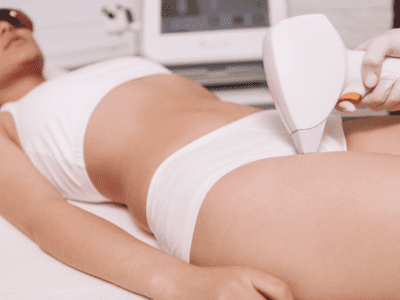As Op. Dr. Tuba Nadide Yılmaz, we offer detailed information about urinary incontinence in women and effective treatment methods. Urinary incontinence may occur as a result of weakening or damage to the pelvic floor muscles. In this article, you will find comprehensive information about the causes of urinary incontinence in women, treatment options and preventive methods.
Urinary Incontinence Overview
Urinary incontinence is a problem that affects women more frequently, especially with conditions such as menopause and childbirth. This condition occurs due to the weakening of the pelvic floor muscles over time and often negatively affects social life. It can also lead to hygiene problems.
Causes of Urinary Incontinence in Women
The main causes of urinary incontinence vary. Previous surgical operations, obesity, aging, nerve damage, other diseases, excessive caffeine use, medications and urinary tract infections are among the factors that contribute to this problem.
Previous Surgical Operations
Previous surgical operations on the reproductive system can cause damage to the pelvic floor muscles and urinary incontinence.
Obesity
Excess weight can increase the risk of urinary incontinence. In obese women, a certain proportion more urinary incontinence is observed.
Aging
With age, changes in the body can increase the likelihood of urinary incontinence.
Nerve Damage
Nerve damage can affect the commands transmitted to the pelvic muscles, which can cause involuntary urinary incontinence.
Other Diseases
Diseases that can cause nerve damage such as diabetes and Parkinson's can be counted among the causes of urinary incontinence.
Excessive Caffeine Use
Caffeine intake can trigger urinary incontinence by straining the bladder.
Medicines Used
Some medicines can increase urine production or cause irregularities in the excretion process.
Urinary Tract Infections
Urinary tract infections can cause urinary incontinence, but this problem is usually resolved when the infection is treated.
How to Prevent Urinary Incontinence?
Urinary incontinence sorununun tamamen önlenmesi mümkün olmasa da, hayat tarzı değişiklikleri ile etkileri azaltılabilir.
1. Regulate Fluid Intake: Ensuring ideal fluid intake positively affects bladder health.
2. Consume Fibre Foods: Fibre-rich foods that prevent constipation can reduce the risk of urinary incontinence.
3. Regular Pelvic Floor Exercises: Exercises that strengthen the pelvic floor muscles can alleviate the problem of urinary incontinence.
Urinary Incontinence Treatment Methods
Changing Lifestyle
1. Getting rid of excess weight: Fighting obesity can alleviate the problem of urinary incontinence.
2. Reducing Beverage Consumption: Keeping the consumption of caffeine-containing beverages under control can reduce the problem of urinary incontinence.
3. Pelvic Floor Exercises: Strengthening the pelvic floor muscles can help manage urinary incontinence.
Medication Treatments
1. Mirabegron: May reduce the need to go to the toilet less often by relaxing the bladder muscles.
2. MRA Group Drugs: It is used in the treatment of urinary incontinence by affecting the bladder muscles.
3. Estrogen: It can contribute to the medication treatment of urinary incontinence problem with regional applications.
4. Desmopressin: May help to urinate less by limiting the amount of urine produced.
Surgical Treatment
Surgical treatmentcan be preferred depending on the severity and type of urinary incontinence problem.
1. Suspension Placement: Placement of a supporting apparatus in the area.
2. Burch Colposuspension: It is performed to support the pelvic organs.
3. Balloon Placement: Support is provided by placing a balloon in the bladder neck.
Frequently Asked Questions
Which department is used for urinary incontinence in women?
Gynaecologists or urologists can be consulted for the treatment of urinary incontinence in women.
Can stress cause urinary incontinence?
Yes, stress urinary incontinence can occur, especially in stressful situations such as coughing or sneezing.
Is urinary incontinence in women a sign of pregnancy?
No, urinary incontinence is not a sign of pregnancy. However, pregnancy can trigger this condition because it can affect the pelvic floor.
Is urinary incontinence treated without surgery?
Yes, in mild and moderate cases, non-surgical treatment methods, lifestyle changes and drug treatments can be applied.
As Op. Dr Tuba Nadide Yılmaz we are here to understand the problem of urinary incontinence in women and offer effective treatment options. Do not hesitate to contact us for your questions or appointment requests. We wish you a healthy day.













